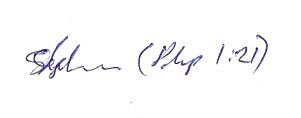Technically, e-Sword is not a Bible, it is a Bible study software program. That is why there are so many translations available for it.
I teach an adult Sunday Shool class myself and we have the same principle as our guide. The problem, of course is that some of the members of the class either do not have the inclination or the resources to do independent study. e-Sword is a good resource if your class has computers so that they have access to the resources.
I wound up writing a couple of pages of commentary so that those without access to the resources, that way they have some way of studying at least something, and since I am the teacher, l without a doubt interject some of my own biases anyway (I do try not to, but it is unavoidable.)
I "published" the first five or so commentaries in the blog section here if you care to check them out.
We are studying the book of John, we will have been at it for a year the end of this month, we should be finishing in about six months.
I guess you could say I believe on covering things in some detail.
Pretty much the only free e-Sword module keyed to Strongs is the KJV, but the NASB study set has Strongs keyed as well as standard versions included. The NASB is pretty much my translation of choice for study, but the NLT is good for daily or devotional reading (I seldom "rabbit-trail" using it.)
I also know that King James was apparently offended by the condemning tone of earlier translations (sounds like conviction to me).
For a very long time English translations of the scriptures were basically done by Roman Catholics.
Douay Old Testament first published by the English College at Douay, A.D. 1609
Rheims New Testament first published by the English College at Rheims, A.D. 1582
The Whole Revised and Diligently Compared with the Latin Vulgate by Bishop Richard Challoner, A.D. 1749-1752
and so on, and therefore were considered to be "tainted".
The KJV, though was considered the only translation suitable for Protestants to use because it was "authorized" by the head of the Church of England Only nominally the head since he had been raised Roman Catholic), with most if not all of the translators being Protestants.
This earned it an advocacy verging upon idolatry in some circles though I doubt conviction had much to do with it.
Yours in Christ,
Tim
Edited by Tim Butterfield, 24 August 2014 - 12:53 PM.





















